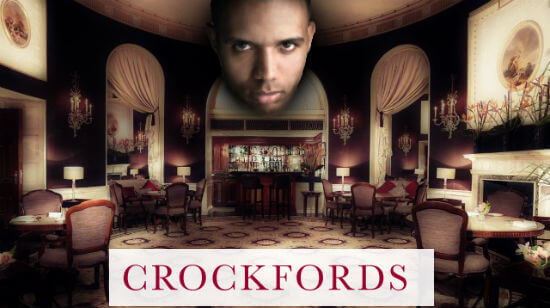It is not often a land-based casino refuses to pay out winnings to their customers, still less one of the most prestigious casinos in the world, but this is exactly what happened to poker legend Phil Ivey at the distinguished Crockfords casino in London, UK.
Crockfords claim that Phil cheated in order to bag the £7.8m. To make things even more confusing, Ivey admits to using a technique called “edge sorting”, but he still maintains it was Crockfords’ fault for using a deck of cards with a visible defect, as we’ll explain.
To cut a long story short, in October 2012 Ivey, accompanied by a female friend known only as Kelly, started playing Punto Banco Baccarat at Crockfords Casino. The beginning of the session was disastrous for Ivey as he managed to lose close to £500,000 in a very short period of time. Most of us would be put off Punto Banco for life by such an experience, but surely a top Poker star is made of sterner stuff?
How the luck turned
At some point during their game, Ivey and his companion complained about a bad run of cards and repeatedly asked the dealer for a new deck. Naturally the dealer complied with the request of such high profile, high-rolling customers and this process was repeated over and over again, until they finally found a deck to their liking. Which was precisely what though - surely if you’ve seen one deck you’ve seen them all?
The deck that they finally stuck with apparently had some small pattern errors on the back of the cards. These would normally be symmetrical for obvious reasons, but due to a fault at the card cutting factory they can sometimes be asymmetrical, not an unheard of phenomenon but one which you’d expect casinos to be well aware of, which is probably why decks are usually routinely discarded at regular intervals. Which is what makes what Paul and ‘Kelly’ allegedly did all the more extraordinary.
These pattern irregularities are so slight that it takes a really trained eye to have a hope of catching them. This is where Phil’s companion (or, it seems, accomplice) came into the picture. She apparently was already well known in the casino fraternity for counting cards and using other nefarious techniques like edge sorting, and it looks like she was allowed to try it again.
When the pair apparently found a faulty deck, they asked the dealer (since the player isn’t allowed to touch any cards in Punto Banco) to turn some of the cards 180 degrees, so that the rotated cards would stand out in the deck, at least to the trained eye. The cards they asked to be rotated were seemingly 9s, 8s, 7s and possibly even 6s. Being able to see if the first card in the shoe will be any of the potential winning cards gives the player a significant edge. This is because Punto Banco is decided by who gets closer to 9, the player or the bank (and a player can bet against him or herself), and with Aces low and 10s and more counting for zero, 6s-9s are the key cards. But did this work for these two?
After sorting out the deck Ivey and ‘Kelly’ suddenly increased their bets from £50,000 to £150,000 and quickly climbed out of their initial losses, ending the evening with a very nice profit. However this wasn’t enough for them and they returned the next day. To delight, presumably, they found the deck from the previous night still in use (or they may have requested its use) and continued playing with maximum stakes until they made a combined profit of roughly £7m and finally decided to call it quits and cash out.
What happened after the lucky night?
However, on attempting to claim his winnings, Phil wasn’t given a hint that anything was wrong, but that because of a bank holiday it would take a couple of days longer than usual for the money to arrive. As usual he was also given a receipt for his wins. A few days later when Phil became anxious about the outstanding funds, he was told by the casino that a fraud investigation had been launched and his wins could’t be transferred before the case was closed. To make things a bit more palatable for Ivey, Crockfords returned his initial stake £1,000,000.
This however did not satisfy the poker champ and he decided to sue the casino for the whole £7.8m, and it’s been in the hands of the legal system ever since. It remains to be seen if the lawyers will also have some sleight of the hand of their own and whose legal team will have the better tricks up their sleeve in the case.
Our sympathy goes to Ivey, even though he freely admits to edge sorting. We believe it is up to the casino to make sure that their entire inventory is in impeccable condition and all the employees are well trained, so they can’t be verbally compromised by the customers. The question we have to ask here is that if Phil Ivey had done the same as he did and lost his money, would the casino still have paid him back? We all know the answer is an unqualified no, so why should a casino be allowed to refuse to pay up?






 Leo Jackpot
Leo Jackpot


 SuperLenny
SuperLenny











